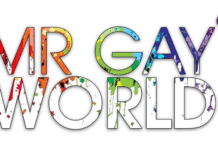
40 per cent of LGBTI people in European countries have recently faced harassment against them and six out of ten people are afraid to publicly hold their partner’s hands.
This is evidenced by a study by the EU Fundamental Rights Agency (FRA) which surveyed 140,000 LGBTI people from EU countries, as well as Great Britain, Serbia and Northern Macedonia participated in the online survey, the largest survey of its type in the world.
The data, experts say, showed only a little progress since 2012, when the previous study was conducted.
FRA Director Michael O’Flaherty said too many LGBTI people continue to live in the shadows afraid of being ridiculed, discriminated or even attacked.
“Even though some countries have advanced LGBTI equality, our survey findings show that overall there has been too little real progress, leaving many LGBTI people vulnerable,” said O’Flaherty.
“Their job and healthcare difficulties may worsen due to COVID-19. Policymakers should take note and do more to actively promote full respect for rights of LGBTI people.”

A fifth of respondents said they feel discrimination at work. A third of respondents said they faced unfair treatment in bars and restaurants.
In Poland, where the ruling conservative party, Law and Justice, calls gays and lesbians “the result of Western influence,” the largest number of complaints of intolerance against LGBT people has been recorded. Poland is followed by France, in which attacks motivated by homophobia have become more frequent.
European Commissioner for Equality, Helena Dalli said that despite the important steps forward regarding the equality of people in the EU in the last few years, LGBTI+ people still report high levels of discrimination.
“More worryingly, we have recently witnessed within the EU anti-LGBTI incidents such as attacks on prides, the adoption of ‘LGBTI ideology-free zone’ declarations, fines for LGBTI-friendly advertisements and others,” Dalli said.
“Everybody in the European Union should feel safe and free to be themselves.”

Comparing the two surveys reveals little overall progress over the seven years. The EU averages mask important differences between countries. In some, over 70% of respondents say society is more tolerant, while in others, up to 68% say it is less.
Key LGBTI survey findings include:
- Openness: 6 in 10 avoid holding hands in public with their partners.
- Harassment: 2 in 5 respondents say they say they faced harassment the year before the survey.
- Attacks: 1 in 5 trans and intersex people were physically or sexually attacked, double that of other LGBTI groups.
- Discrimination: 1 in 5 feel discriminated against at work and over 1 in 3 feel discriminated against when going out to eat, drink or being social.
- Schooling: 1 in 2 LGBTI students say someone among their peers or teachers supported LGBTI people.
- Economic situation: 1 in 3 LGBTI people say they have difficulties to make ends meet. The situation is worse for intersex and trans people (about 1 in 2).
This survey covers the EU 27 Member States, the UK, Serbia and North Macedonia. For the first time, it included experiences of intersex people and young LGBTI people aged 15 to 17.
In the video associated with the report, LGBTI people talk about their own lives – in their own words:
Last Updated on May 15, 2020
The news team for Gay Nation love tips from our readers. Got tips or a news story that you would like published? Go here to tell us something.
Visit the Gay Nation store Now





























